
Overview
In this book readers will find technological discussions on the existing and emerging technologies across the different stages of the big data value chain. They will learn about legal aspects of big data, the social impact, and about education needs and requirements. And they will discover the business perspective and how big data technology can be exploited to deliver value within different sectors of the economy.
The book is structured in four parts: Part I “The Big Data Opportunity” explores the value potential of big data with a particular focus on the European context. It also describes the legal, business and social dimensions that need to be addressed, and briefly introduces the European Commission’s BIG project. Part II “The Big Data Value Chain” details the complete big data lifecycle from a technical point of view, ranging from data acquisition, analysis, curation and storage, to data usage and exploitation. Next, Part III “Usage and Exploitation of Big Data” illustrates the value creation possibilities of big data applications in various sectors, including industry, healthcare, finance, energy, media and public services. Finally, Part IV “A Roadmap for Big Data Research” identifies and prioritizes the cross-sectorial requirements for big data research, and outlines the most urgent and challenging technological, economic, political and societal issues for big data in Europe.
This compendium summarizes more than two years of work performed by a leading group of major European research centers and industries in the context of the BIG project. It brings together research findings, forecasts and estimates related to this challenging technological context that is becoming the major axis of the new digitally transformed business environment.
Foreword
“This book reports on preparatory work toward an important policy objective of the European Commission: turning Europe into a safe and privacy-respecting society that thrives by extracting maximum value from the data it produces and reuses, be it in support of important societal goals or as fuel for innovation in productive activities. Our plans for Europe are described in our July 2014 Communication on a data driven economy, where we spell out a three-pronged approach addressing regulatory issues (such as personal data protection and data ownership), framework conditions (such as data standards and infrastructures), and community building. The first visible step of our community building efforts is a massive commitment (534 million Euros by 2020), which we signed in October 2014, to enter in a Public Private Partnership with the Big Data Value Association (BDVA): with the help from industrial parties and groups that represent relevant societal concerns (such as privacy), we intend to identify and solve technical problems and framework conditions (such as skill development) that stand in the way of European companies increasing their productivity and innovativeness by making efficient use of data technologies. By shouldering some of the financial risk of these activities, we plan to leverage even more massive European investment: for every public Euro invested by the Commission, our industry partners have committed to investing four private Euros. Naturally, this requires some well-informed and clear thinking on which domains of data-related activities hold the greatest promise for a safe and prosperous Europe and on how we can avoid wasteful duplication in the development of data infrastructures, formats, and technologies. The book you are holding in your hands gives you a first lay of the land: it results from more than two years of work(also funded by the European Union) aimed at identifying issues and opportunities that are specifically European in character. We fully expect that many of these results will be included and further elaborated over the years in the strategic planning of the BDVA, and we are happy to share them in this book with the broader public. We hope that you will find them informative and that they will help you shape your own thinking on what your expectations and active role might be in a better Europe that has taught itself to run on data.”

GIUSEPPE ABBAMONTE
Directorate G Media & Data, European Commission DG CONNECT
“Data has become a factor just as important to production as labor, capital, and land. For the new value creators in today’s technology start-ups, little capital and office space is required. Both can be almost free when a firm is growing 1 % per day, on any metric. But without talent, and without the right kind of data, such a takeoff is highly improbable. We see the same forces at play in SAP’s Innovation Center Network. Attracting the right talent was critical to establish the first Innovation Center in Potsdam. And having large, real-world datasets from customers and co-innovation partners is critical to many of our innovations. To make a difference in cancer treatment and research with our Medical Research Insights app, we critically depended on data-driven collaboration with the National Center for Tumor Diseases. The same holds for incubating SAP’s new sports line of business by co-innovating with the German national soccer team based on real-time sensor feeds from their players. And it holds true for SAP’s many initiatives in the Internet of Things, like the predictive maintenance apps with John Deere and Kaeser. The Big Data Value Association (BDVA) is poised to make a difference both for data availability and for talent. By bringing together businesses with leading researchers, software and hardware partners, and enabling co-innovation around large, real-world datasets, BDVA can help lower the data barrier. And helping educate the next generation of thought leaders, especially in data science, computer science, and related fields, BDVA can help increase the supply of talent. Both are critical so Europe can begin to lead, not follow, in creating value from big data. By clearly defining the opportunity in big data, by examining the big data value chain, and by deep-diving into industry sector applications, this book charts a way forward to new value creation and new opportunities from big data. Decision makers, policy advisors, researchers, and practitioners on all levels can benefit from this.”

JÜRGEN MÜLLER
Vice President, SAP Innovation Center Network. President, Big Data Value Association
Highlights
Book Highlights and Key Related Concepts

Big Data Value Ecosystem
The ability to effectively manage information and extract knowledge is now seen as a key competitive advantage for organizations. Europe needs to foster the development and wide adoption of big data technologies, value adding use cases, and sustainable business models through a Big Data Ecosystem tackling technology, skills, legal, business, and social dimensions.
learn more
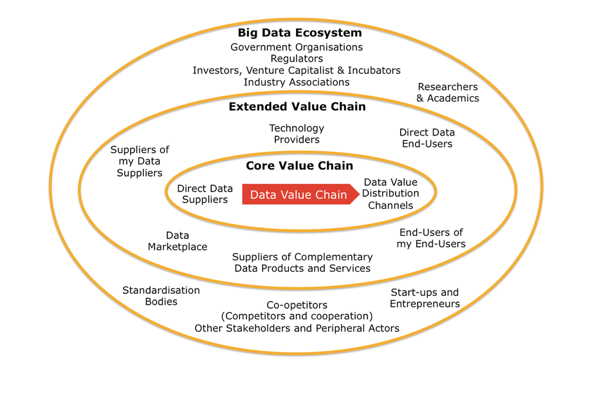
Big Data Ecosystem Stakeholders
We explore the use of the ecosystem metaphor within the business community to describe the business environment and how it can be extended to the big data context. We identify the key stakeholders of the big data ecosystem together with the challenges that need to be overcome to enable a big data ecosystem.
learn more
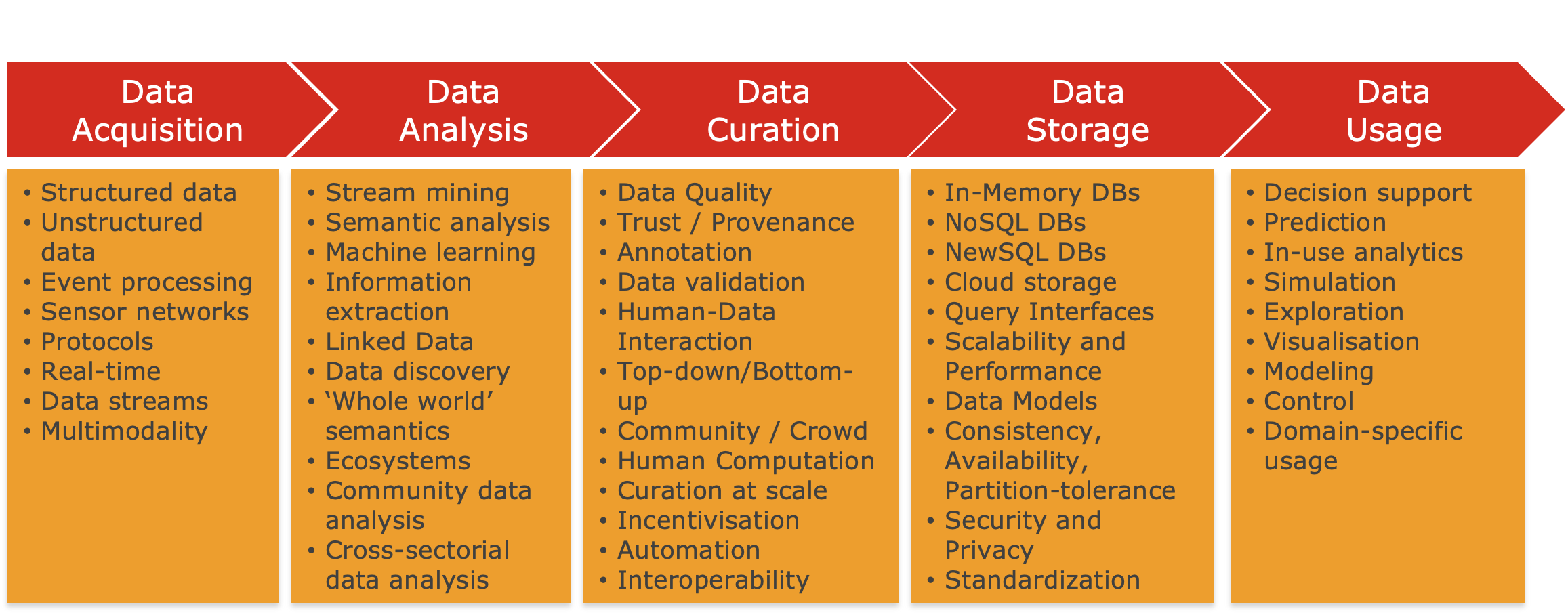
Big Data Value Chain
The Big Data Value Chain describes the information flow within a big data system as a series of steps needed to generate value and useful insights from data. The value chain enables the analysis of big data technologies for each step within the chain.
learn more
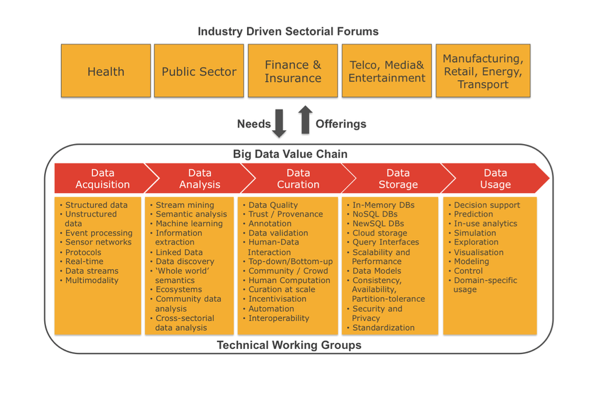
Big Data Supply and Demand
The needs (demand) are identified by sector forums are used to understand the maturity and gaps in the capability offered by current big data technology (supply). This analysis provided a clear picture on the limitations and expectations regarding big data technology deployment. The outputs of the analysis were used to produce a series of consensus-reflecting roadmaps that defined priorities and actions needed for big data in each sector.
learn more
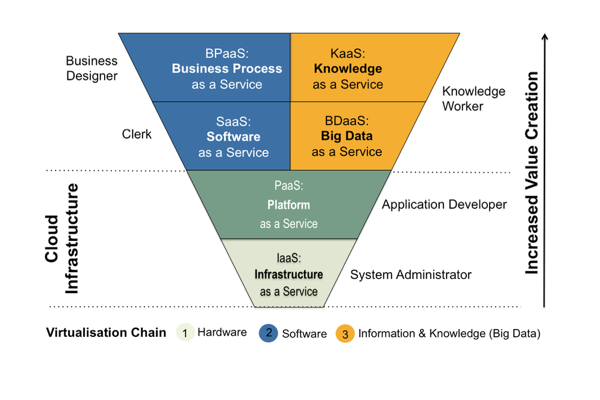
Big Data in Service Infrastructure
Big Data Usage covers the business goals that need access to data, its analyses, and integration into business decision-making. The continuing integration of digital services (Internet of Services), smart, digital products (Internet of Things) and production environments (Internet of Things, Industry 4.0) includes the usage of big data in most integration steps.
learn more
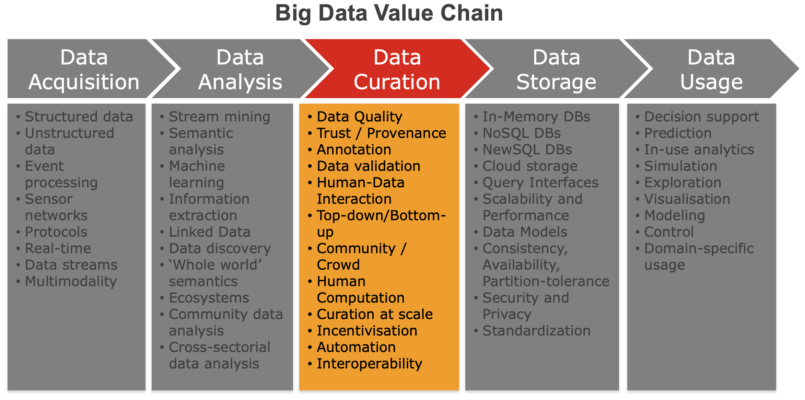
Big Data Curation
With the growth in the number of data sources and of decentralised content generation, ensuring data quality becomes a fundamental issue for data management environments in the big data era. The evolution of data curation methods and tools is a cornerstone element for ensuring data quality at the scale of big data.
learn more
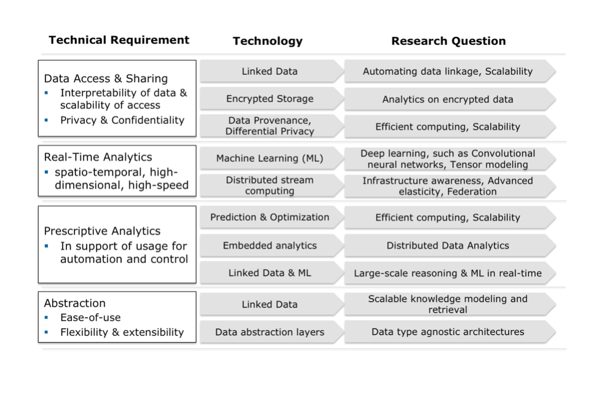
Big Data Roadmap for Energy and Transport
Massive amounts of sensor and textual data await the Energy and Transport sector stakeholders once the digital transformation of the sector reaches its tipping point. Domain specific big data technologies are needed for Cyber-Physical Energy and Transport systems, whilst the focus needs to move beyond Big Data to Smart Data technologies. This roadmap identifies recommendations that will help sustain the quality and competitiveness of energy and transport infrastructures as they undergo digital transformations.
learn more
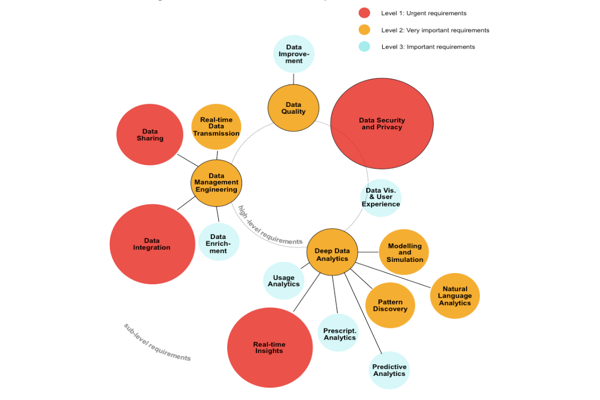
Cross-Sectorial Requirements
We identified the cross-sectorial requirements for big data research necessary to define a research roadmap. We detail the process used to consolidate the big data requirements from different sectors into a single prioritised set of cross-sector requirements.
learn more
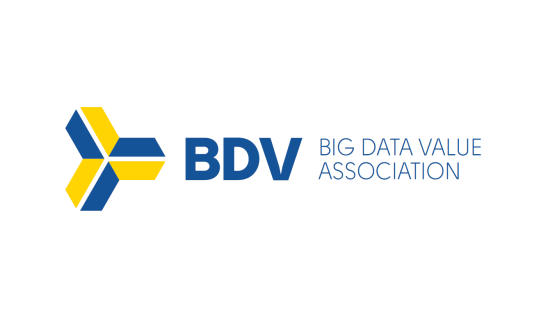
Establishing the BDVA
Big Data Value Association (BDVA) is an industry-driven international non–for-profit organisation with over 180 members all over Europe and a well-balanced composition of large, small, and medium-sized industries as well as research and user organizations.
learn more

Big Data Value PPP
The European contractual Public Private Partnership on Big Data Value (BDV cPPP) was signed on 13 October 2014 marking the commitment of the European Commission, industry and partners from academia to build a data-driven economy across Europe.
learn more
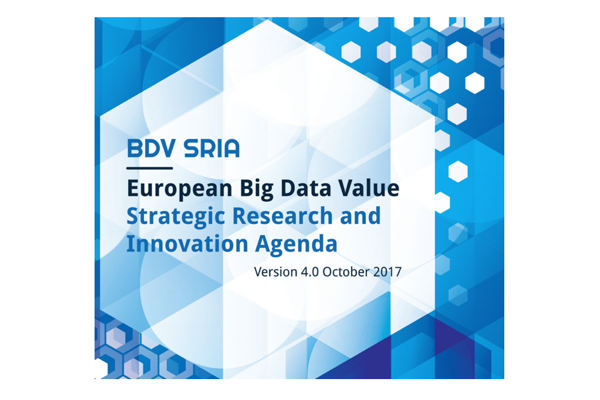
Big Data Value SRIA
This Strategic Research and Innovation Agenda (SRIA) defines the overall goals, main technical and non-technical priorities, and a research and innovation roadmap for the European Public Private Partnership (PPP) on Big Data Value.
learn more
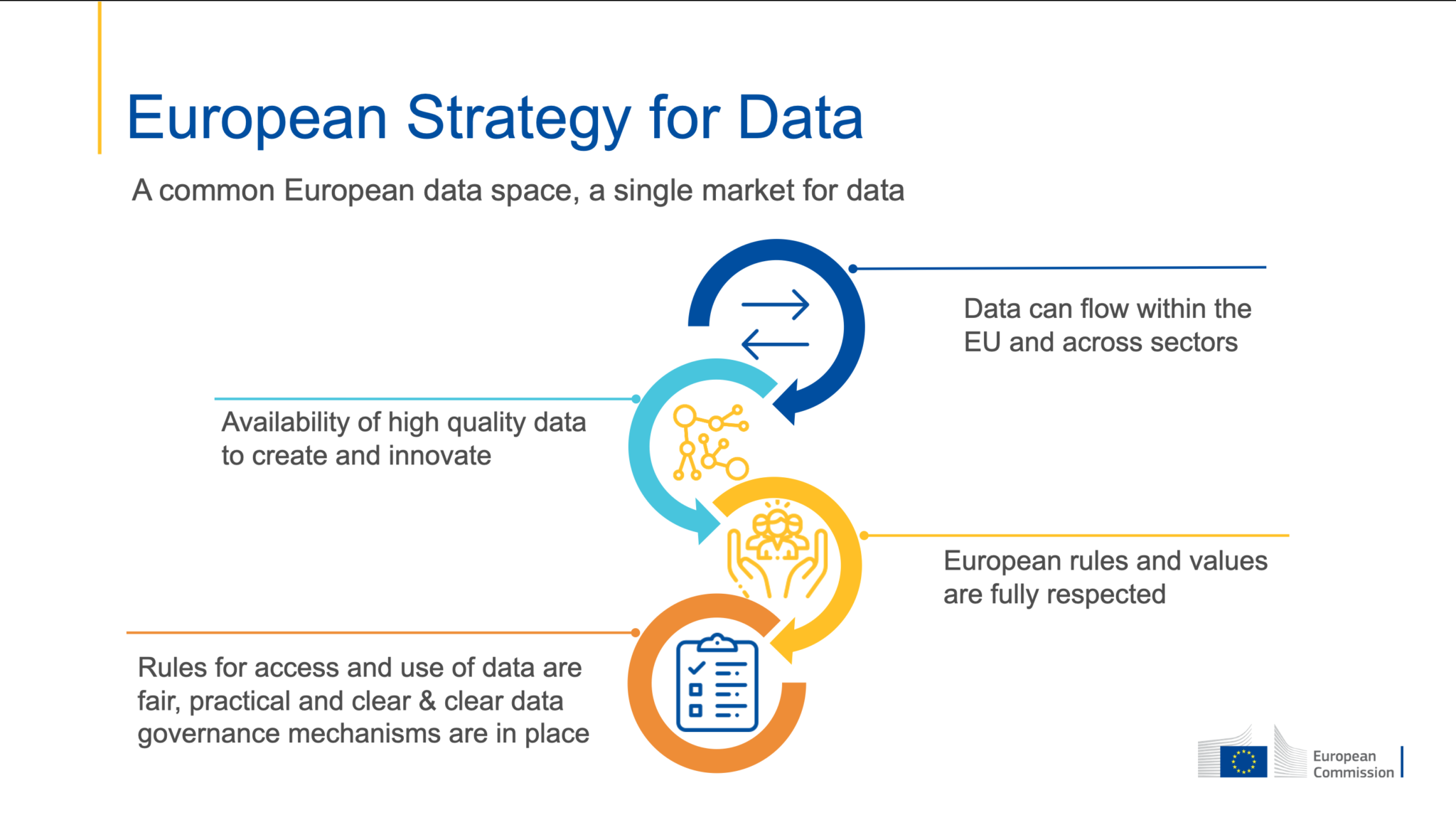
EU Stratergy for Data 2020
The European strategy for data aims at creating a single market for data that will ensure Europe’s global competitiveness and data sovereignty. Common European data spaces will ensure that more data becomes available for use in the economy and society, while keeping companies and individuals who generate the data in control.
learn more
Chapters
CitationEditors

JOSÉ MARÍA CAVANILLAS
ATOS
José María Cavanillas is currently R&D&I Director in Atos since 2000. He is Master Engineer in Telecommunications in Madrid Technical University (UPM) and has completed post-graduate studies in Business Administration and International Trade from CEPADE. In the last 20 years his team has been involved in more than 200 R&D&I projects.

EDWARD CURRY
INSIGHT, DSI, NUI Galway
Edward Curry is a Scientist at the Insight Centre NUI Galway. His research interests include smart cities, energy intelligence, semantic information management, event based systems, and collaborative data management. He has worked extensively with industry and government advising on the adoption patterns, practicalities, and benefits of new technologies.

WOLFGANG WAHLSTER
DFKI
Prof. Dr. Wolfgang Wahlster is the Director and CEO of the German Research Center for Artificial Intelligence (DFKI) and a Professor of Computer Science at Saarland University (Saarbrücken, Germany).
He has published more than 170 technical papers and 8 books on language technology and intelligent user interfaces.